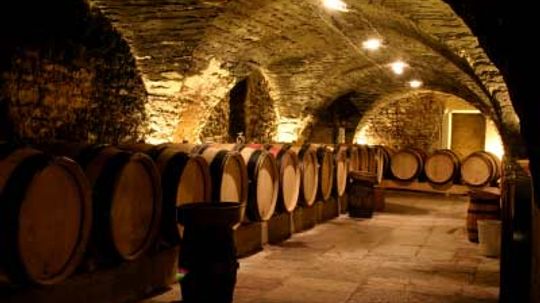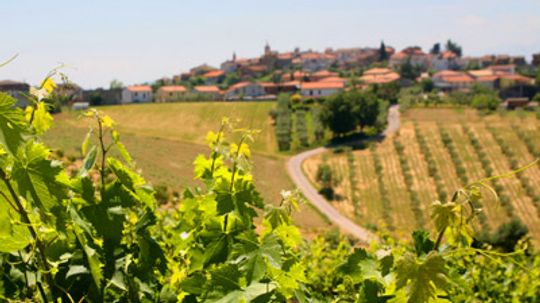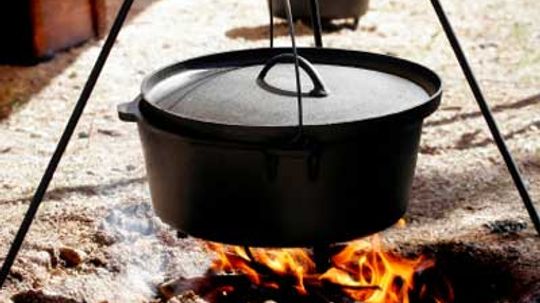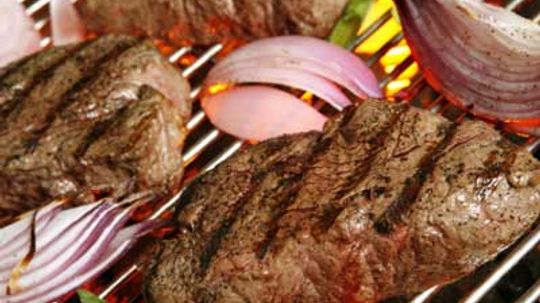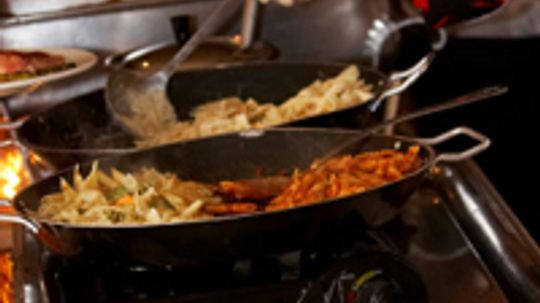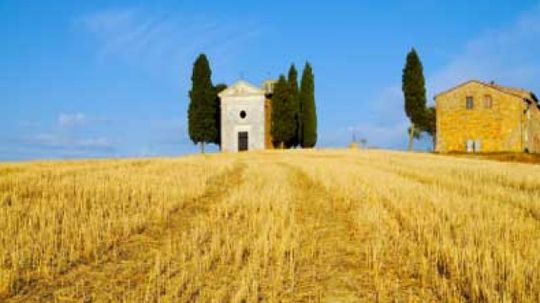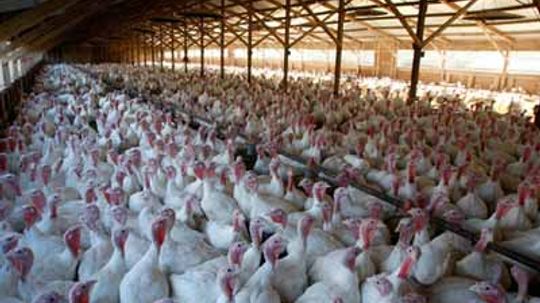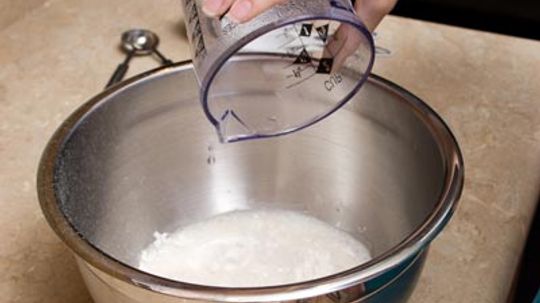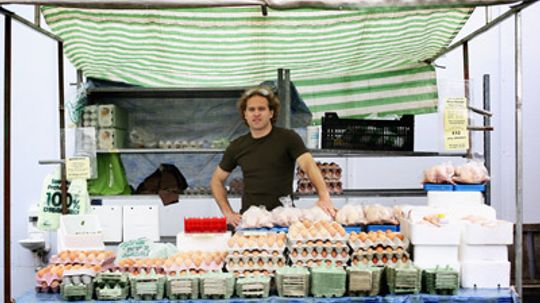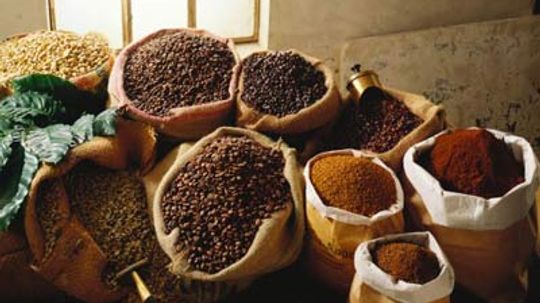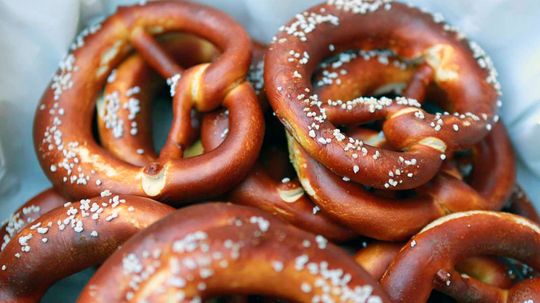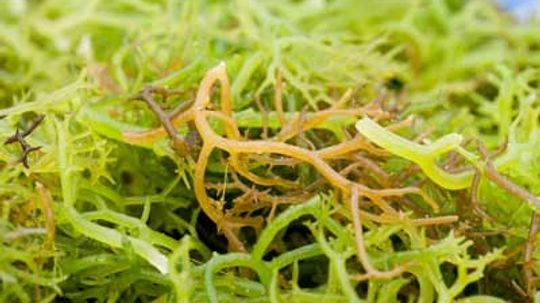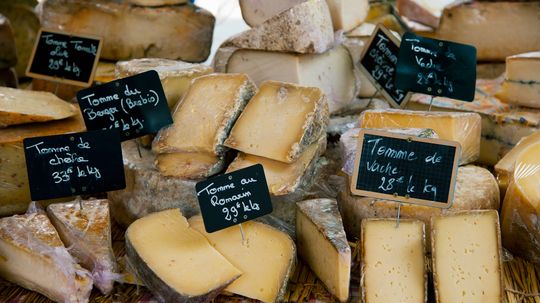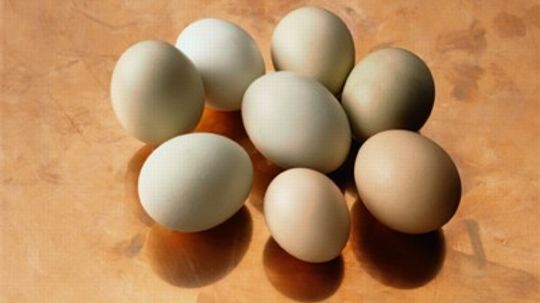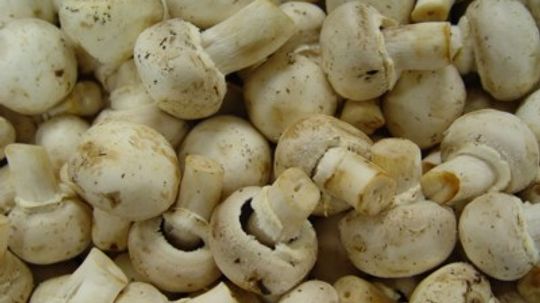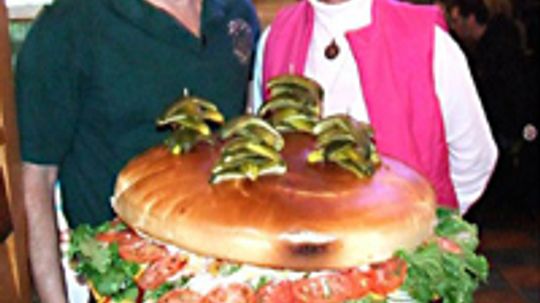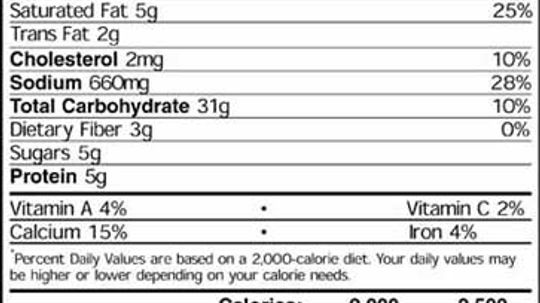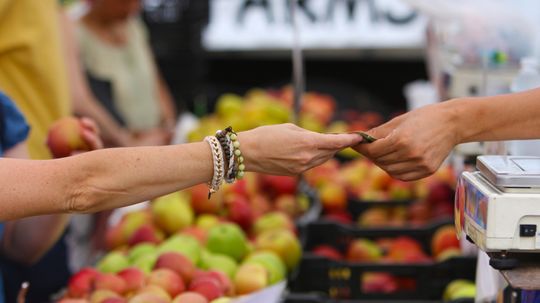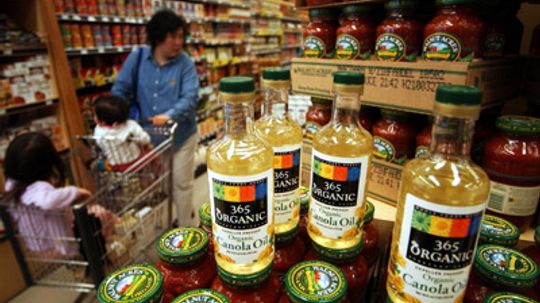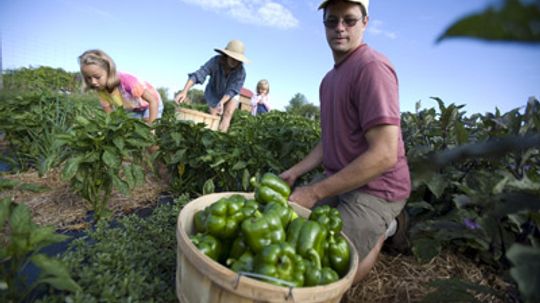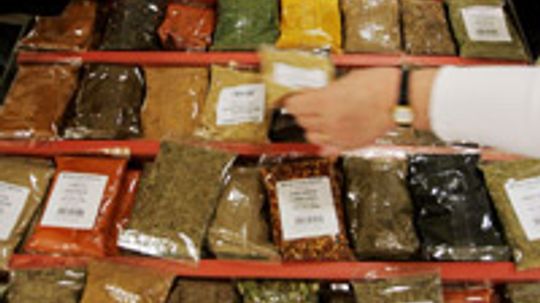Food and Recipes
Here is a place for you to play with your food -- literally: enjoy, have fun with and celebrate food -- but don't worry, we'll still help you get dinner on the table every night.
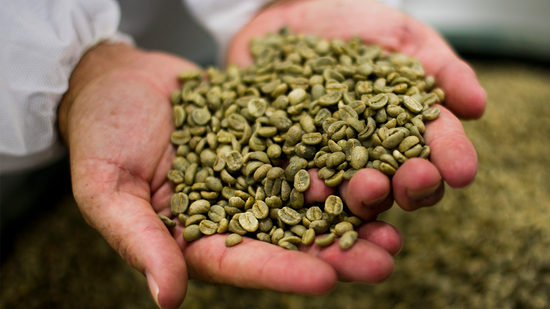
Want a Perfect Cuppa Joe? Roast Your Own Coffee Beans
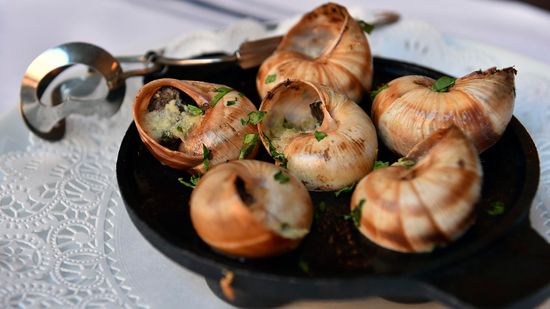
How Escargot Evolved From Snail Snack to Treat for the Elite
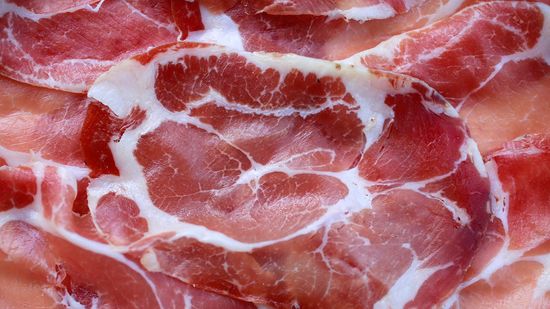
Capicola: The Italian Dried Meat Tony Soprano Called 'Gabagool'

Spread Holiday Cheer With a Good Mulled Beer
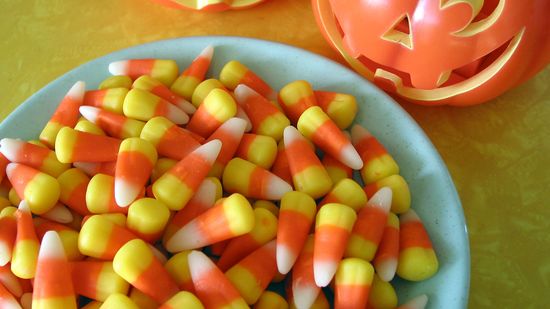
What Is Candy Corn and How Is It Made?

Why Restaurants Are So Loud These Days
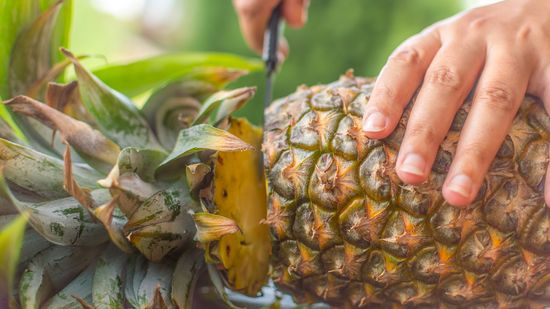
How to Cut a Pineapple in 4 Easy Steps
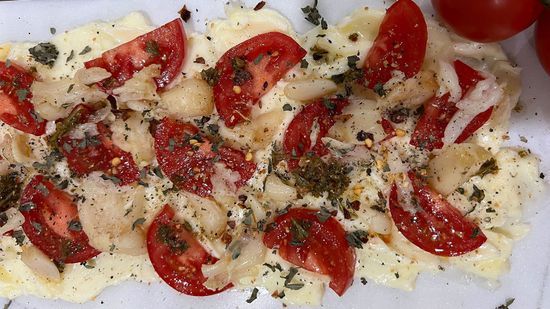
Butter Boards Are Creaming Charcuterie Spreads This Season
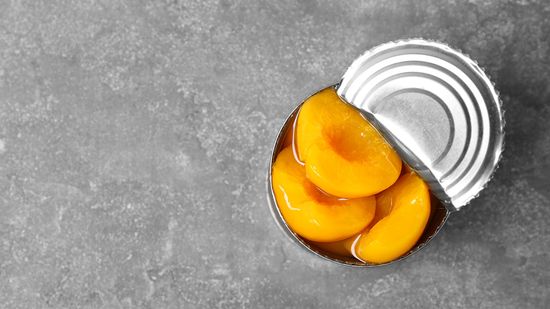
5 Ways to Open a Can Without a Can Opener
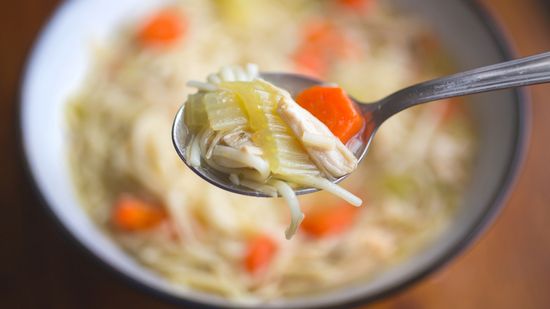
Does Chicken Soup Really Help When You're Sick?
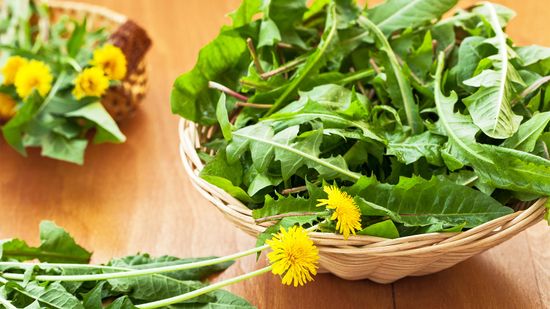
5 Fall Foods You Can Forage in Your Own Neighborhood
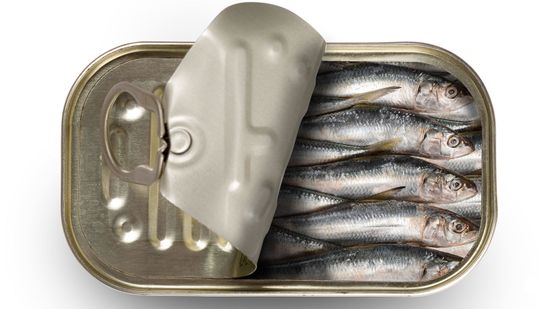
Sardines: The Stinky Little Fish You Should Be Eating
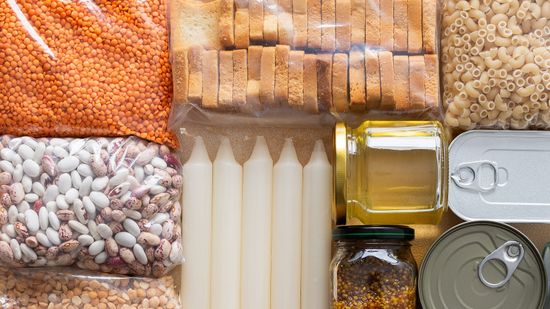
The Longest-lasting Food Items Aren't All Dry Goods
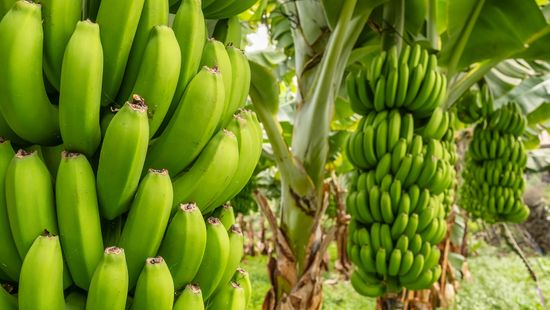
What Is a Group of Bananas Called? A Bunch Isn't What You Think
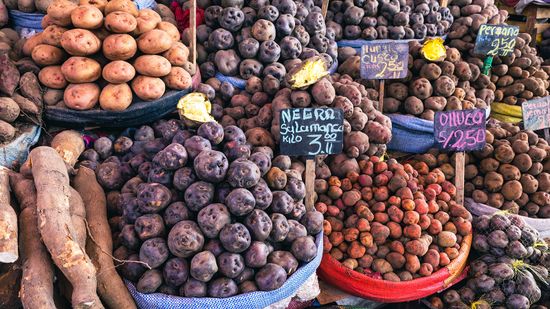
Where Do Potatoes Originate From? Not Ireland
Learn More / Page 37
Potentially violent volcanic activity lies deep beneath Latium, one of the most important winemaking regions of Italy. It helps the area produce wonderfully distinctive grapes and wines.
By Eleanor Duse
Your date tells you he's in the mood for a French wine. You nod enthusiastically, but really you don't know a thing about wine, French or otherwise. What sets this region's wine apart?
On the east coast of Italy, south of the boot cuff, in the temperate region known as the mezzogiorno, is Abruzzo.
By Eleanor Duse
Advertisement
Did you know that you can cook cake inside an orange peel and a casserole inside a coffee can? Just two of the many ways you can make meals over a campfire.
Restaurants and grocery stores seem to think Black Angus Beef is the bee's knees. But most steak consumers have no idea why. What's all the hype about?
Movie stars, musicians and professional athletes have had the celebrity corner locked down for decades. But these days, there's a new breed of celebrity that wields a whisk and a wooden spoon instead of a guitar or baseball bat.
Where can you find the world's best pasta? The obvious answer is Italy, where the food staple originated. But did the Italians take a culinary cue from the Chinese? Were Marco Polo and Kublai Khan swapping recipes in the 13th century?
Advertisement
Congratulations! Your baby is ready to start eating solid foods. Now what? You could buy jars of baby food off the grocery store shelf to meet this need, but making homemade baby food is almost as easy as boiling water.
"A spoonful of high-fructose corn syrup makes the medicine go down" just doesn't have the same ring to it. Is this artificial sweetener the sugar cube's evil twin?
By Tom Scheve
It may come in fourth on the list of top protein choices, but one day out of the year nothing else will do. Every Thanksgiving Day, chicken, beef and pork all step aside for turkey. But would the bird be so popular without its own holiday?
Find yourself dreaming about mounds of sweet, delectable candy? You aren't alone. The average person in the United States eats 10 pounds of chocolate per year -- and that's just chocolate! Join the ranks and check out this candy image gallery.
By Marie Bobel
Advertisement
Baking powder is an essential ingredient when preparing and making baked goods. As a leavening agent it gives volume and a fluffy texture to muffins, breads and cakes.
When farmers go to market, they cut out the middleman and bring fresher products to the consumer. So how do farmers' markets run, and where can you find one?
If your morning routine includes a cup or two of coffee, you may know a few things about it. It's a stimulant drink, it comes from beans that are roasted and ground and, for many of us, it's a staple of life.
In the 1,400 years since the pretzel was invented, bakers have come up with a wide variety of shapes and flavors. These fun facts show how adaptable and versatile this twisted snack truly is.
By Jeremy Glass
Advertisement
You'd be hard pressed to find a Canadian restaurant in the United States (except for the 300 Tim Hortons franchises...we'll get to that), but Canada's cultural and geographic diversity has produced quite a few foods that can boast Canadian heritage.
Cheese has been around in the Mesopotamian region since before 6000 B.C. That's a long time for a food to gain notoriety in the culinary world. See what cheese has been up to for the past couple of thousand years in this cheese facts article.
Eggs are an emblem of life for every culture, but each culture has it's own specific rituals and rights surrounding the egg. Find out some of these strange and foreign egg facts.
Mushrooms, whether cultivated or harvested wildly, can provide a delicious addition to any meal. Learn more mushroom facts about these fungi.
Advertisement
Hungry? A restaurant in Detroit, Mich. has made a 134-pound cheeseburger. It's sure to set the new world record for size, but it's certainly not the costliest menu item available.
By Josh Clark
While peanut butter does contain a lot of the components you need in your daily diet, it doesn't have all of them. What would happen to your body if you only ate peanut butter?
Locavores avoid eating ingredients that have not been grown and produced locally. But does giving up your morning coffee or even chocolate really help the environment and the local economy?
Organic foods and other products are popping up everywhere. USDA organic seals make them fairly easy to spot. But what's behind the label? How do products become certified organic?
Advertisement
Many people believe buying organic or local food helps the environment. But which purchase is more environmentally sound? Is it better to buy pesticide-free food from exotic spots or local food from non-organic farms?
Flavorists are enlisted by food manufacturers to concoct new and improved flavors for food. But how natural is the process?
By Sarah Dowdey

